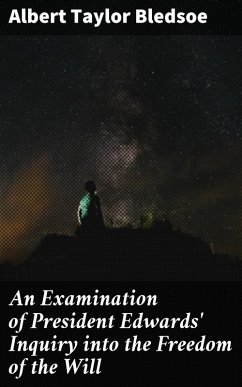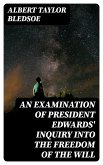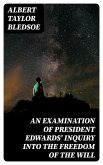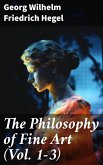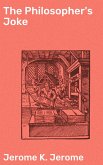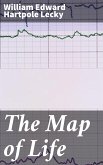In "An Examination of President Edwards' Inquiry into the Freedom of the Will," Albert Taylor Bledsoe presents a thorough critique of Jonathan Edwards' philosophical notions surrounding free will and determinism. Bledsoe intricately examines Edwards' arguments through a meticulous analysis of metaphysical implications, employing a clear and rigorous rhetorical style that engages both the mind and the spirit. Set against the backdrop of 19th-century American thought, the book interweaves theological inquiry with emerging philosophical discourse, contributing significantly to discussions that resonate in the realms of morality, freedom, and human agency. Bledsoe, a notable scholar and theologian himself, drew deeply from his extensive education and the intellectual environment of his time. Influenced by the fervor of the antebellum American South, he grappled with the implications of freedom and moral responsibility, particularly in relation to the growing abolitionist movement and the complex social issues of his era. His depth of understanding in both philosophy and theology informs his rigorous examination of Edwards, revealing Bledsoe's commitment to intellectual honesty and moral clarity. Recommended for scholars of philosophy and theology alike, Bledsoe's work not only provides critical insights into Edwards' theology but also serves as a broader commentary on the enduring questions of human freedom and ethical responsibility. This book is essential reading for those seeking to understand the intersections between free will, morality, and the socio-political landscape of 19th-century America.
Dieser Download kann aus rechtlichen Gründen nur mit Rechnungsadresse in A, B, BG, CY, CZ, D, DK, EW, E, FIN, F, GR, H, IRL, I, LT, L, LR, M, NL, PL, P, R, S, SLO, SK ausgeliefert werden.

